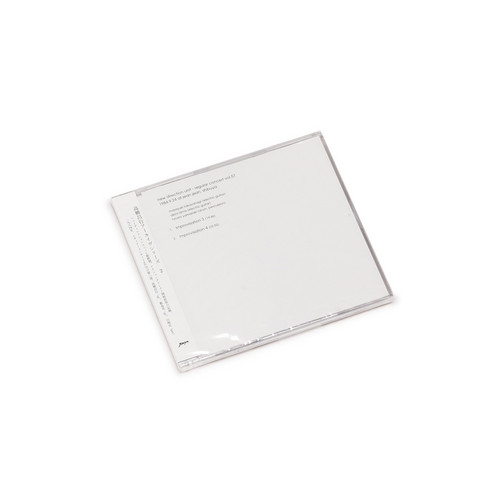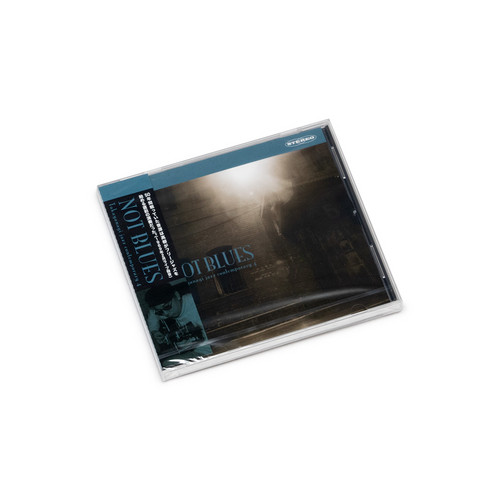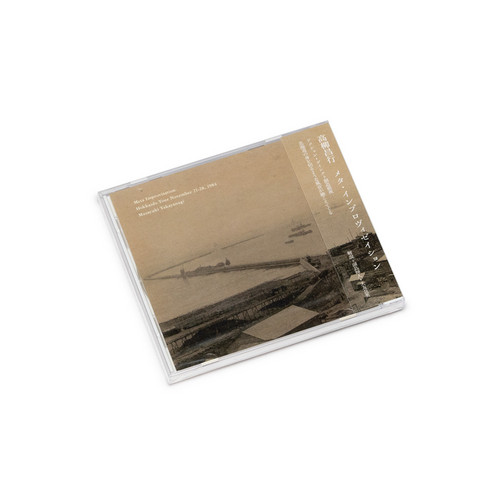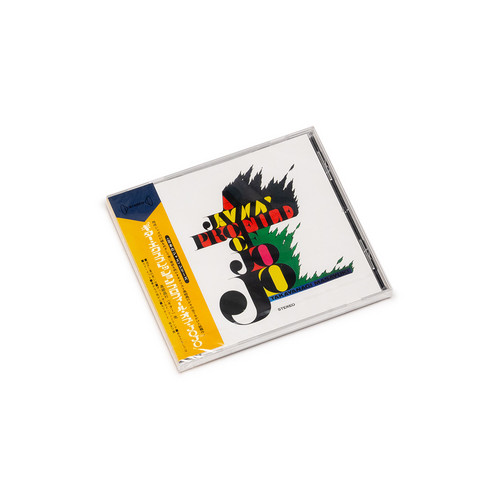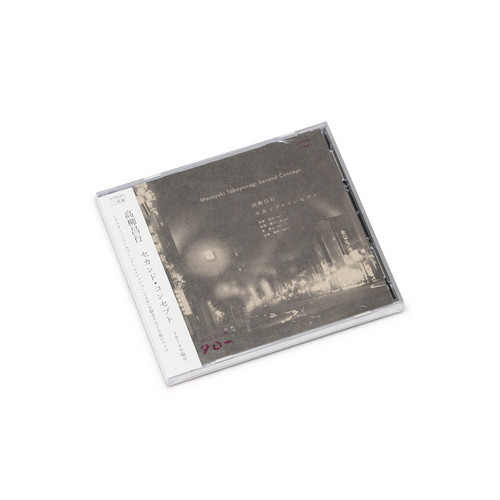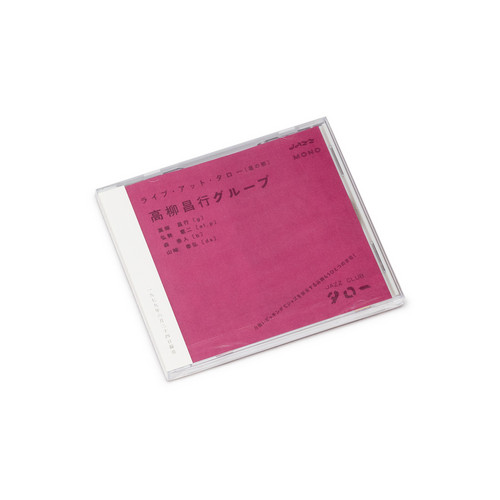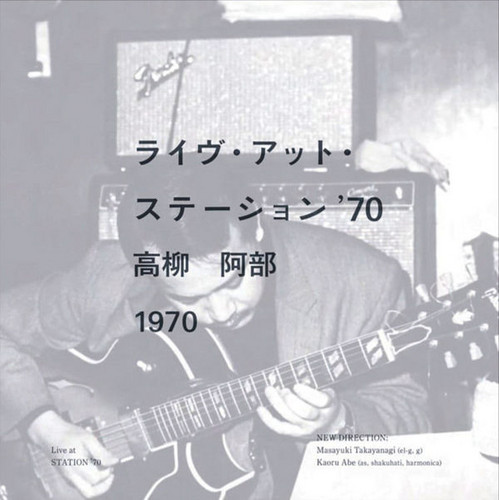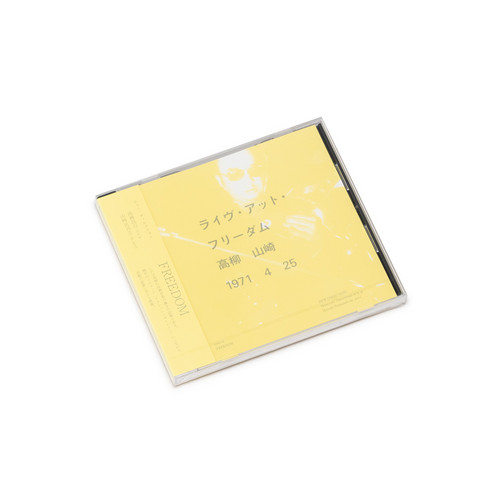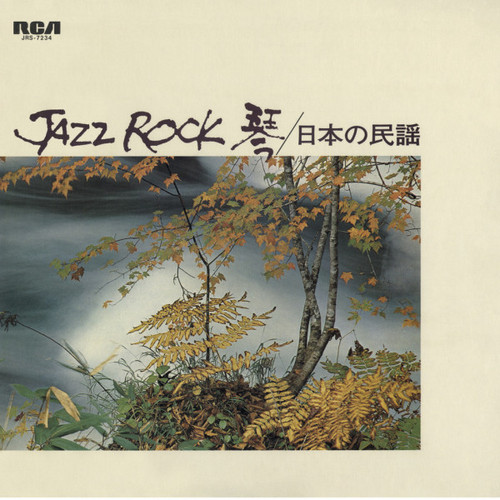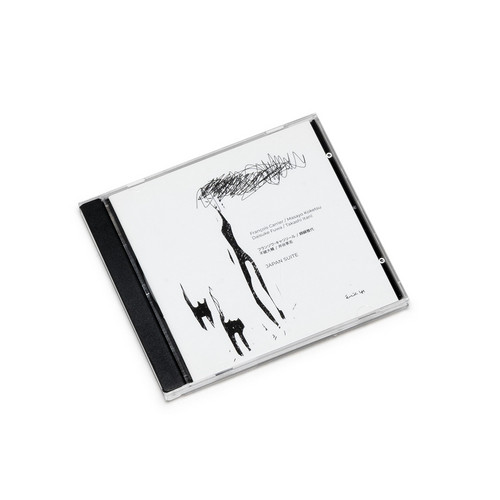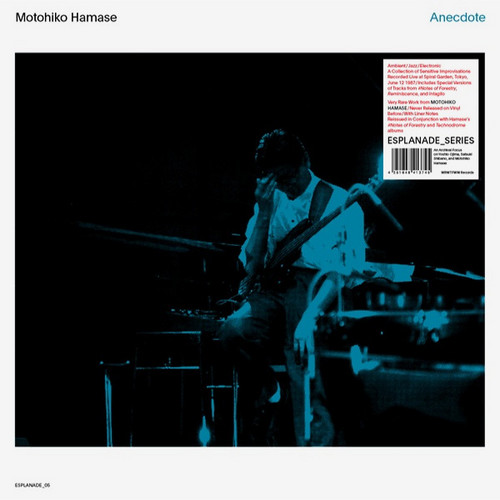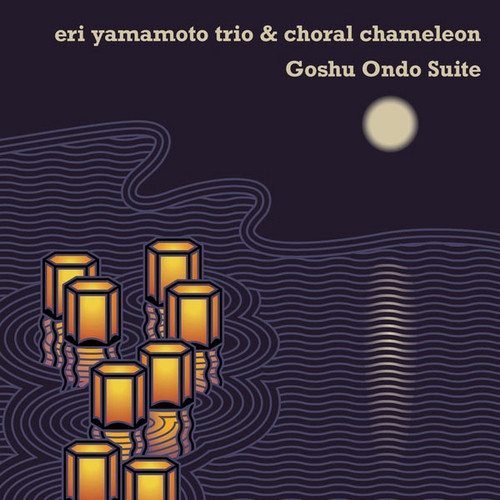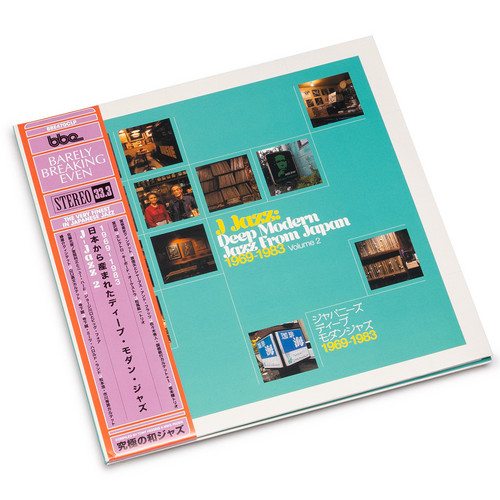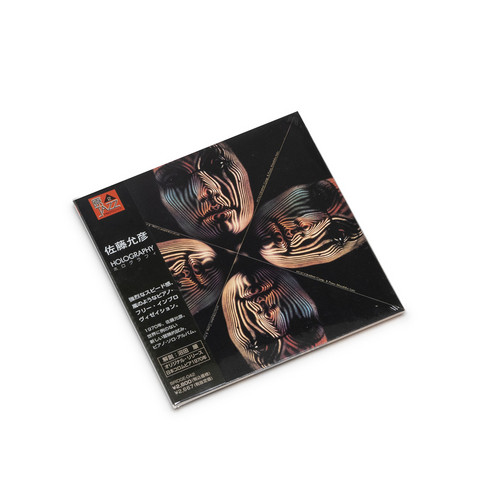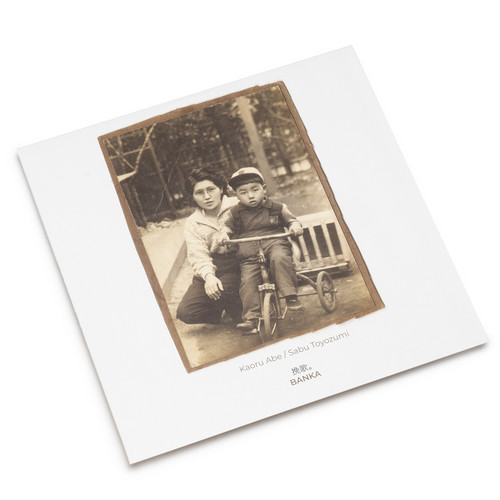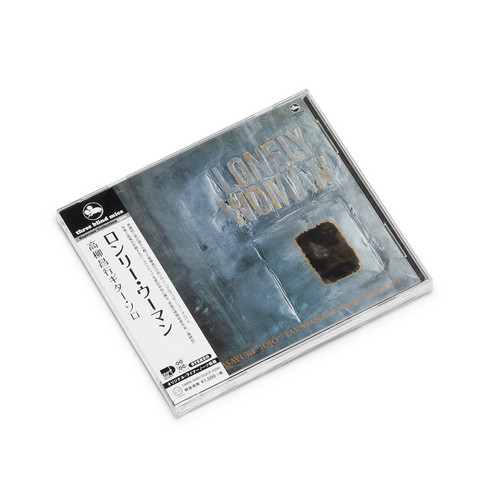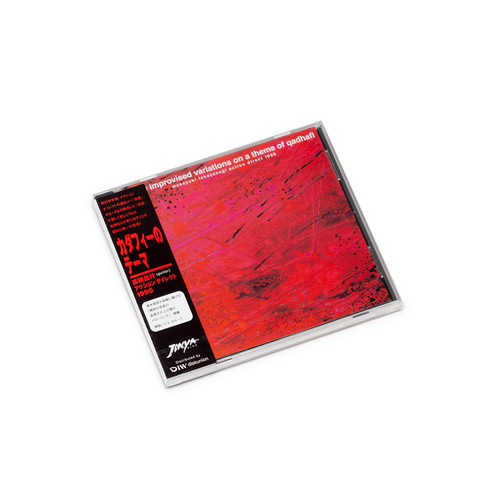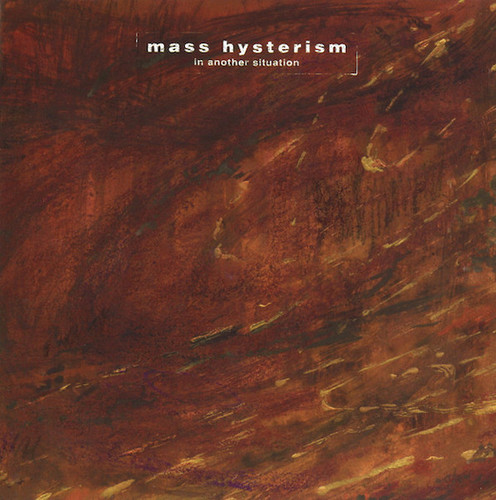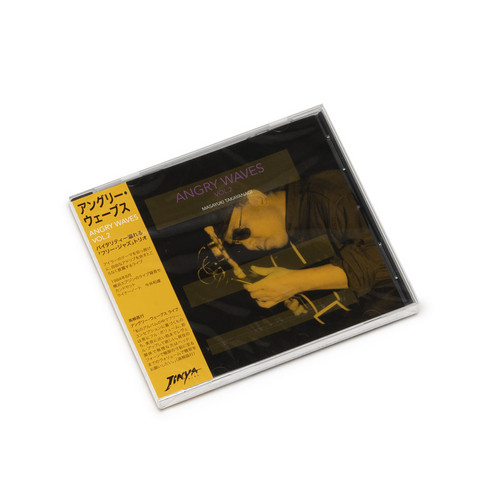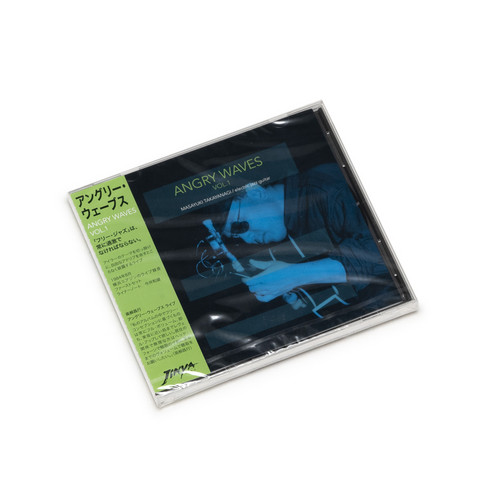Jazz /
Archive 2
This work is an uncut recording of the second part of the regular concert vol.57 (September 24, 1984, at Shibuya Jean-Jean) of the new Direction Unit led by Masayuki Takayanagi. It is a performance in which Hiroshi Yamazaki participates as a percussionist on a twin guitar with Akira Mejima, who is also a disciple of Takayanagi.
Akira Mejima is a high-ranking younger brother who has taught at a guitar school on behalf of Takayanagi, so Iijima's guitar heard from the left channel sometimes sounds …
Not Blues
* 2020 Stock * Not Blues is a live recording of the contemporary jazz group Masayuki Takayanagi Jazz Contemporary 4, which was formed in February 1969. It was the year when the group New Direction was formed and the first recording "Independence" under the name of New Direction was released in September the following year. In other words, this work is a record of "jazz performance" just before Masayuki Takayanagi moved to free jazz.
According to the commentary by guitarist Kazuo Imai (that studi…
Meta Improvisation
Masayuki Takayanagi's live solo performances recorded from 1984 Hokkaido Tour, selected and edited by Otomo Yoshihide; incredible electronics and guitar work from the pre-Action Direct freestyle improviser... "This is Takayanagi's live solo performances recorded from 1984 Hokkaido Tour. tunes were selected and edited by Otomo Yoshihide. those takayanagi solo performances were cued himself to organize "Action Direct" right after. So "Meta Improvisation" is the pre-"Action Direct", that is to say:…
A Jazzy Profile of Jojo
A Jazzy Profile of Jojo is composed of standard jazz masterpieces interpreted by Masayuki Takayanagi. It was recorded in March 1970 immediately after the start of the New Direction (1969). Legendary recordings with Kaoru Abe such as "Dismantling Sympathy" were also performed in the same period. Considering this, "A Jazzy Profile of Jojo" can be defined as a representative recording of Takayanagi's jazz style at a time when the transition from the more established forms of jazz to the exploration…
Second Concept
* 2020 Stock * Jinya Disc presents a double live album initially recorded to cassette tape by Yoshihiro Tanabe, a student of Takayanagi Juku on November 25, 1979 at jazz club Taro, Tokyo. The album includes 12 tracks performed by Masayuki Takayanagi - Guitar, Kenji Kosei - Electric Piano, Hiroshi Yamazaki - Drums, and Yasuhito Mori - Bass. Initial copies came with a limited edition bonus disk by a trio version of the group containing a mono version of "Froggy Day" recorded on May 27, 1979.
The …
Live at Taro
Jinya Disc presents a live concert recorded to cassette tape on June 24, 1979 (afternoon set) at jazz club Taro, Tokyo. Mastered at Kojima Rokuon. The album includes 4 tracks performed by Masayuki Takayanagi - Guitar, Kenji Kosei - Electric Piano, Hiroshi Yamazaki - Drums and Yasuhito Mori - Bass.
Masayuki 'Jojo' Takayanagi was a Japanese jazz / free improvisational musician. He was active in the Japanese jazz scene from the late 1950s. Was one of the earliest noise guitar improvisers, and the f…
Station '70
**This version also includes a bonus Action Direct CDr** Jinya Disc presents a live concert by New Direction. The album includes 2 tracks performed by Masayuki Takayanagi - Guitar, and Kaoru Abe - Alto Saxophone. The first album track: Thursday / Gradually Projection, was recorded on June 18, 1970 at Tokyo. The second one: Jha / Mass Projection was recorded on May or June, 1970 at Tokyo.
Masayuki 'Jojo' Takayanagi was a Japanese jazz / free improvisational musician. He was active in the Japanese…
Live at Freedom 1971
Jinya Disc presents Live at freedom by New Directions, recorded live on 25 April 1981 at Takasaki. The album includes 4 tracks performed by Masayuki Takayanagi - Guitar, and Hiroshi Yamazaki on drums.
Masayuki 'Jojo' Takayanagi was a Japanese jazz / free improvisational musician. He was active in the Japanese jazz scene from the late 1950s. Was one of the earliest noise guitar improvisers, and the first (with Keith Rowe) to use the table-top guitar. Was a leading member of every avant-garde move…
Jazz Rock
They say you can't judge a book by its cover, and going by 'Jazz Rock’, nor a record by its title. Though entering into jazz territory and featuring some distorted guitar, 'Jazz Rock' is more a beautiful marriage of funky breakbeat drumming and spiritual jazz instrumentation, combined with traditional Min'yō music performed on the koto and shakuhachi.
Originally released in 1973, the record sounds simultaneously vintage and contemporary. It is akin to something Madlib might dream up whilst lost …
Japan Suite
"Recorded live at Yamaneko-ken, Ogose, Saitama, Japan, in December 2019, Japan Suite includes 6 kind free jazz pieces in Japanese style. The fantastic idea of this album is actually to confront kind free jazz phrasing of François Carrier with the truly free jazz phrasing of Masayo Koketsu. That is actually the second amazing aspect of this album: the battle of two alto saxophones. The opening monumental Uchi-soto - Inside Outside is a great illustration of these aspects. All of this happens with…
Anecdote
**CD version, to be released on 29.05.2020** "WRWTFWW Records is proud to announce the official reissue of Motohiko Hamase’s extremely rare live album Anecdote (recorded in 1987). The album is sourced from original masters and available on vinyl (double LP) for the first time ever as well as on CD. It comes with liner notes from the artist. This marks the sixth release from the Esplanade Series which focuses on the works of Yoshio Ojima, Motohiko Hamase and Satsuki Shibano.Anecdote was recorded …
Goshu Ondo Suite
"Eri Yamamoto transcended jazz, classical and folk forms in creating her new work for jazz trio and 50-member choir. She has seamlessly melded biography, group improvisation and far-ranging compositional vocabularies in a momentous seven-part suite, featuring her longstanding trio in collaboration with New York-based Choral Chameleon, directed by its award-winning founder, Vince Peterson. The suite is based off of the Goshu Ondo, a traditional circle dance song from Shiga, Japan, where it was su…
J Jazz: Deep Modern Jazz From Japan 1969-1983 (Volume 2)
"Following the sell-out success of our landmark compilation, J Jazz: Deep Modern Jazz From Japan 1969-1984, BBE Records is thrilled to present another exploration into the very finest Japanese modern jazz.J Jazz Volume 2 builds on the solid foundation of the first compilation and sees co-compilers Tony Higgins and Mike Peden once again pick choice sections from their own record collections. They present a deep dive into an intoxicating and beguiling range of styles: from cinematic roaring big-ba…
Holography
**2006 release, long out of print, very few copies available** One of the rarest albums ever from the mighty Masahiko Satoh, a composer and arranger,as well as a key figure in the avantgarde music from Japan. Originally issued on Japan Columbia in 1970, the two sides of very free piano show a sensitivity that's really amazing – still moments of freedom that reflect Satoh's connection to the avant garde of the time, interwoven with his own sense of cosmic creation, in ways that are similar to his…
Banka
Edition of 300 copies. Japanese free/jazz sax legend, Kaoru Abe, dies at the age of only 29 in 1978, living a fast and crazy life and dieing of a drug overdose. His entire music career was only 10 years, from 1968 to 1978. In that short period, he was well recorded with around 30 releases, ten of which are solo sax efforts, duos with guitarist Masayuki Takayanagi, bassist Motoharu Yoshizawa and drummer Sabu Toyozumi. Mr. Abe also toured and recorded with Milford Graves, Derek Bailey and Toshinor…
Lonely Woman
*2022 stock* Guitarist Masayuki "Jojo" Takayanagi (1932-1991) was a towering leader in the Japanese jazz world. His first influence was Lennie Tristano, but through the 1960s and 1970s he explored and pushed the boundaries in free form jazz, leading a group called New Direction, among others. Ever a fighting spirit, in 1982, shortly after recovering from a life-threatening medical condition and surgery, Takayanagi decided to take on a challenging task for any guitarist: To record an entire solo …
Three Improvised Variations On A Theme Of Qadhafi
Jinya Disc presents Three Improvised Variations On a Theme of Qadhafi. A live recording board that includes live performances of improvisation by Action Direct, which was performed on the theme of "personal image" of Muanmar al-Gaddafi rather than ideology or political position. Jim O'Rourke refers to Three Improvised Variations On a Theme of Qadhafi as "a constellation of moving celestial bodies, expanding gas, exploding stars densely packed" and "a corridor of endless possibilities and discove…
Mass Hysterism: In Another Situation
Mass Hysterism: In Another Situation, a 1983 record by the late Japanese noise-guitar hellion Masayuki Takayanagi (1932–1991) is one of those albums that always going to be lurking in my attic, so to speak. I can put it away for a while, but it never goes to sleep—it's always calling me. Even if it takes a few years, I'll be back. (As an illustration of this, I obsessed over Takayanagi in a February 2007 post as well.) It's a bashing, clanging exorcism: two electric guitars (the other played by …
Angry Waves Vol.2
Masayukia Takayanagi, electric jazz guitar. Nobuyoshi Ino, contra bass. Hiroshi Yamazaki, drums. Recorded live at Yokohama Airegin on August 26, 1984. Remastering and remix by Yukio Kojima from Takayanagi's private tapes. Linernote (in Japanese) by Kazuo Imai.
Angry Waves Vol.1
Masayuki Takayanagi, electric jazz guitar. Nobuyoshi Ino, contra bass. Hiroshi Yamazaki, drums. Recorded live at Yokohama Airegin on August 26, 1984. Remastering and remix by Yukio Kojima from Takayanagi's private tapes. Linernote (in Japanese) by Kazuo Imai.
